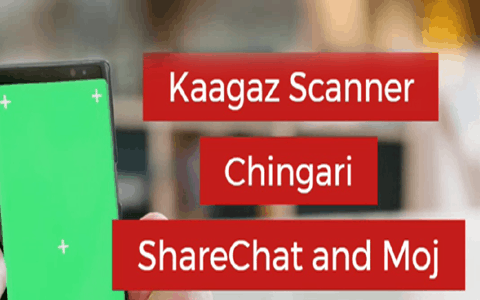Introduction
The ban on Chinese apps has opened up a plethora of opportunity for India based businesses. PM Modi’s stated objective of a self-reliant country has sent Indians searching for Indian alternatives to the Chinese behemoths. As per a recent survey conducted by us, it was seen that78% of people in India have positive sentiments claiming growth of Indian industries as a result of reducing business with Chinese firms. 8.3%are not sure of any impact and 13.7% have skeptical feelings that there can be a decline in businesses with reduced opportunities.
The hunt for substitutes of banned apps has led people to search for alternatives. As per the survey, around 83.4% believed that India can well establish itself as technology adopters from counterparts within the country. Only 11.9% feels that the country may fall behind the technology adoption cycle when India restricts businesses with their Chinese counterparts.
Rising Indian Apps that are leading the game
Recent developments have seen a surge in the popularity and usage of indigenous platforms in India. There are several Indian apps blossoming to hit and capture the market. In fact, some of them have already started making top headlines at local as well as global level with hints of investments from bigger players. Let us look at the list some prominent players demonstrating great prospect in the home grown app market.
1. Kaagaz Scanner
It offers an alternative to Camscanner, the popular document scanning platform which was among the Chinese apps banned by the Indian government. It organically went from almost zero to 200,000 downloads in just three days of the Camscanner ban. With over 1.1 million downloads on Play Store; the app has over 70,000 daily unique users.The app is available in Hindi and English, their 70% downloads are from WhatsApp forwards and Social Media outreach in about 1.5 months. Kaagaz Scanner allows users to scan as many pages as needed with direct sharing to email, WhatsApp and other platforms. The Gurugram-based Ordenado Labs have plans to add support via AI-based cloud storage. This will allow documents to be auto arranged into buckets like Personal ID, Insurance, Invoices, Employment, Medical and various different categories and a freemium monetization model will be built.
- The brain child of Kaagaz Scanner are Snehanshu Gandhi, Gaurav Shrishrimal, and Tamanjit Bindra.
- Started in 2019 as Ordenado Labs.
- Snehanshu graduated from IIT-Bombay in 2007 and ISB Hyderabad in 2012.
- Gaurav is an IIT-Kanpur alumnus.Tamanjit is an Army Institute of Technology Pune alumnus.
Young developers from places such as Solapur in Maharashtra and Gir Somnath village in Gujarat have launched Indian alternatives toconsumer-centric Chinese utility apps. These apps are Bharat Scanner, Share India and ShareKaro focused on categories under file-sharing and management, photo-scanning and phone cache cleaning, among other applications. Indian consumers exploration for a file sharing app have resulted in alternatives like JioSwitch, MX ShareKaro, InShare, Files by Google, SHAREgo, SFT – Swift File Transfer, Bhejo and UpSend.
2. Chingari
The Indian start-up Chingari has already hit 10 million downloads on Google Play Store in no time and its accidental success is due to its similarity to TikTok. The app allows users to record a video or act on a movie dialogue. The platform currently offers content in 11 languages and the company is in the process of adding more languages in the future to enhance the overall user experience. Chingari has been engineered and developed for over 2 years with regular feedback from the users. Unlike TikTok, Chingari claims to take content moderation very seriously before being posted on the platform. They follow the Waterfall model and a video on Chingari doesn’t go viral immediately. Soon Chingari users will be able to follow and receive latest updates in partnership from the streaming platform ALTBalaji.
- The Bengaluru based software Development Company is co- founded by Sumit Ghosh and Biswatma Nayak in 2018.
- Sumit Ghosh started his entrepreneurial career with IT services company Globussoft and scaled it to 60 crore annual revenues. Socioboard is his second venture in the digital marketing space on building automation products.
- Biswatma Nayak is a tech-geek with 8 years of experience in Android, he has built 10-15 social media automation tools, dating apps andscaled them to 1M users.
3. ShareChat and Moj
Another development is seen in India’s home-grown social network ShareChat which currently has more than 150 million registered users and60 million monthly active users across 15 Indian languages. It is India’s largest regional language social media platform with an exponential growth seen in its Moj app, a TikTok alternative. With a competitive advantage now, in absence of TikTok in India, ShareChat is looking to raise $150-200 million and is holding discussions with investors and big technology companies. Reports claim that they have added 15 million users in just 36 hours after ban. With around 15 languages including Assamese, Tamil, Gujarati, Kannada, Hindi, and Bhojpuri, this platform, in the course of its four year existence has previously received investment from Twitter. This Bengaluru-based social media firm’s Moj got 10million downloads within 6 days of its launch and is strictly for users who are looking for 15 seconds of fame by creating short videos. Currently Google has an eye on ShareChat as Microsoft is set to go after TikTok in the US.
- The three IIT Kanpur Alumnus, Ankush Sachdeva , Bhanu Pratap Singh and Farid Ahsan started ShareChat as a debate platform.
- Ankush is CEO of ShareChat and has a B.Tech degree in Computer Engineering. He is responsible for the overall Growth Strategy of theplatform.
- Bhanu is CTP of ShareChat and has a B.Tech Degree in Electrical Engineering whose main focus in on technical strategy and scalabilityof the platform.
- An avid cricketer, reader and swimmer, Farid is the COO of ShareChat with a B.Tech degree in Material science and Engineering.
Rise of Indian Short Video Apps after TikTok Ban
Since the ban on TikTok, more than a dozen short-video apps, including Roposo, Dailyhunt’s Josh, and MX Player’s TakaTak, are vying for the top spot. MX Player is owned by Times Internet, the digital arm of the Times Group that includes The Economic Times. GoSocial has over80,000 users which has seen 20% jump in its user base post the ban. Trell, the social media app claimed that a 500 percent jump in its traffic in just 24 hours post the ban announcement. Another ‘Made in India’ short video app named Roposo have also experienced more than 65 million downloads in a short span of time. A part of InMobi Group, Roposo has 80 million videos created monthly. This is available in 12 Indian languages and has more than 14 million video creators.
Indian Mobile Gaming Market and its Future
“Apart from the above players, a soon to be launched game FAU-G has been doing rounds.”
Developing a substitute of one of the most populous games PUBG is a huge responsibility that the homegrown rival named nCore Games from Bengaluru has vouched to accomplish. It is set to be launched by the end of October 2020, the name FAU-G stands for “Fearless and UnitedGuards “. The launch of FAU:G echoes the sentiment of Prime Minister Narendra Modi’s call for an “atma-nirbhar” nation. Founded in 2018,Vishal Gondal is a major investor in the firm with Dayanidhi MG as chief executive of the firm that is mentored by the veteran actor AkshayKumar. Reports state that the team at nCore had been working on FAU-G since June 2020 after the Galwan attacks – the clash in Ladakh that led to the martyrdom of 20 Indian soldiers and unspecified number of casualties on the Chinese side. It further claims that the launch of this new game has nothing to do with the ban on PUBG.
nCore is developing multi player games with immersive storylines with the prime aim to strongly connect games with Indian ethos. The game is expected to be multiplayer and involve maps and many features with an expectation to attract 200 million users in a year. Media reports further states that 20% of the net revenue generated through the game shall be donated to Bharat Ke Veer Trust that was set up after the 2019 Pulwama terror attack.
Vishal Gondal is not new to making war games. In the past, he had developed a game named Yoddha, set up in the backdrop of the Kargil Warwhere Indian soldiers aimed at shooting down terrorists. He had previously backed about 25 startups, spread across, India, Singapore and inthe US. He is also the founder of wearable devices startup GOQii (healthcare platform which currently operates out of Menlo Park, California)as well as Indiagames (created in 1999 and sold it to Disney in 2011). They have also exclusively partnered with Rovio Entertainment (theFinnish game developers associated with the popular Angry Birds franchise).
According to industry estimates, annual mobile gaming revenues in India are forecast to grow multifold to over $1 billion in 2021 thereby making India the fastest-growing mobile games market in the world by overall revenue. Undoubtedly, India’s still-nascent gaming sector is poised for a breakthrough. Allied with rising demand for mobile content, greater smartphone penetration and lower cost of data the mobile gaming market can prove to be a boon for the Indian economy in the home grown segment.
To view a summarized version, click here https://www.youtube.com/watch?v=rJPZVzEg-zY





